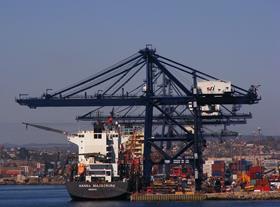
Fears are growing that the social unrest that has gripped Chile in the past six weeks could derail fruit exports during the 2019/20 season.
This week, trucker union the National Confederation of Cargo Transportation (CNTC) published a letter denouncing the government’s inability to guarantee the free movement of trucks, warning that the country’s exports and imports could grind to a halt.
“Those who govern are unable to guarantee that we can circulate,” the statement read. “Police are paralysed and overwhelmed…our paralysis is imminent. Not because we want it, but because the roads of Chile are being taken with impunity by those who want to stop us.”
The union, which groups together around 20,000 truckers has urged the government to restore the rule of law, warning that otherwise, “there will be no supply of goods, medicines and other products essential for the daily life of Chileans, there will be no exports, nor imports, or movement of people….leading to chaos in the country in a few days”.
The letter, signed by Pérez, went to warn that the government is losing control of the country, noting that “the loss of control over roads is the beginning of the end”.
The unrest has already resulted in significant downturn in throughput at the country’s main ports. Luis Knaak, general manager of the Port of San Antonio, told El Mercurio that the protests had negatively impacted operations at the port.
“The stoppages of these last weeks have meant that the port system as a whole, which includes the port, our workers, concessionaires and carriers has ceased to receive around CLP$3.6bn (US$ 4.4m),” he said.
The demonstrations, together with the trade war between the US and China, has led the ports of San Antonio and Valparaíso, who between them handle more than 60 per cent of Chile’s foreign trade, to forecast a sharp decline in cargo movements by the end of 2019.
Knaak said that the port of San Antonio’s original estimate of 1.9m TEUs had been reduced by 13 per cent to 1.65m TEUs. However, he predicted that throughput would recover to 1.9m TEUs in 2020.
The shutdowns at port terminals are causing growing consternation among fruit exporters. Speaking to El Mercurio, Cristián Tagle, president of the Chilean Cherry Committee, said: “there is a lot of uncertainty. If this strike worsens, it would leave us in an unfortunate situation, because the fruit’s shelf life is affected – either it is shipped immediately or it loses its commercial value”.
Asoex president Ronald Bown said Chile’s foreign trade, especially when it comes to perishable products, “requires meeting predefined deadlines, which, if not realised, can create problems, not only in terms of the country’s image, but also in the loss of contracts, thus affecting thousands of workers and their families”.
Chile was already facing a slight dip in deciduous fruit exports in 2019/20 due to the ongoing drought and a contraction in planted area, according to the USDA’s annual fruit report.



